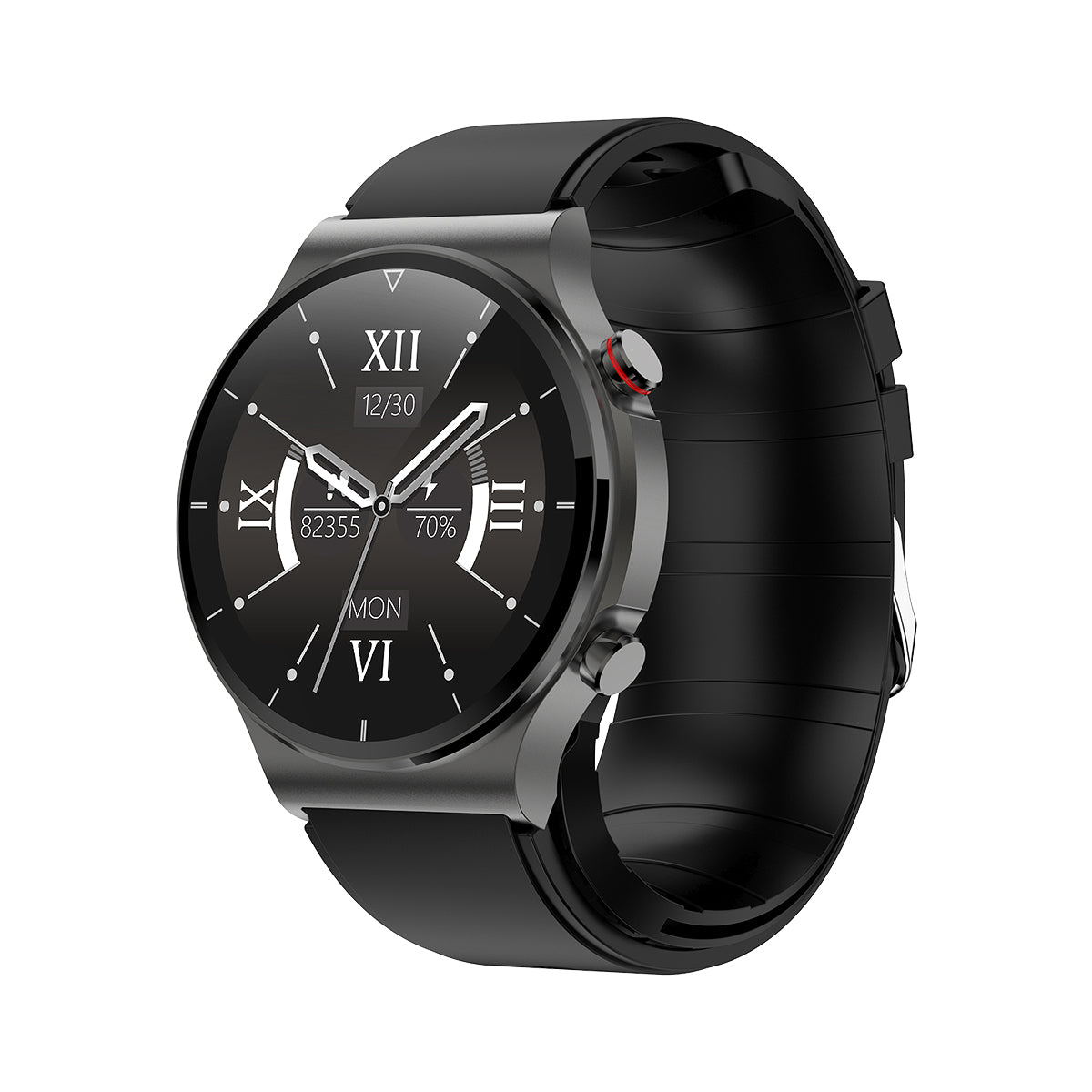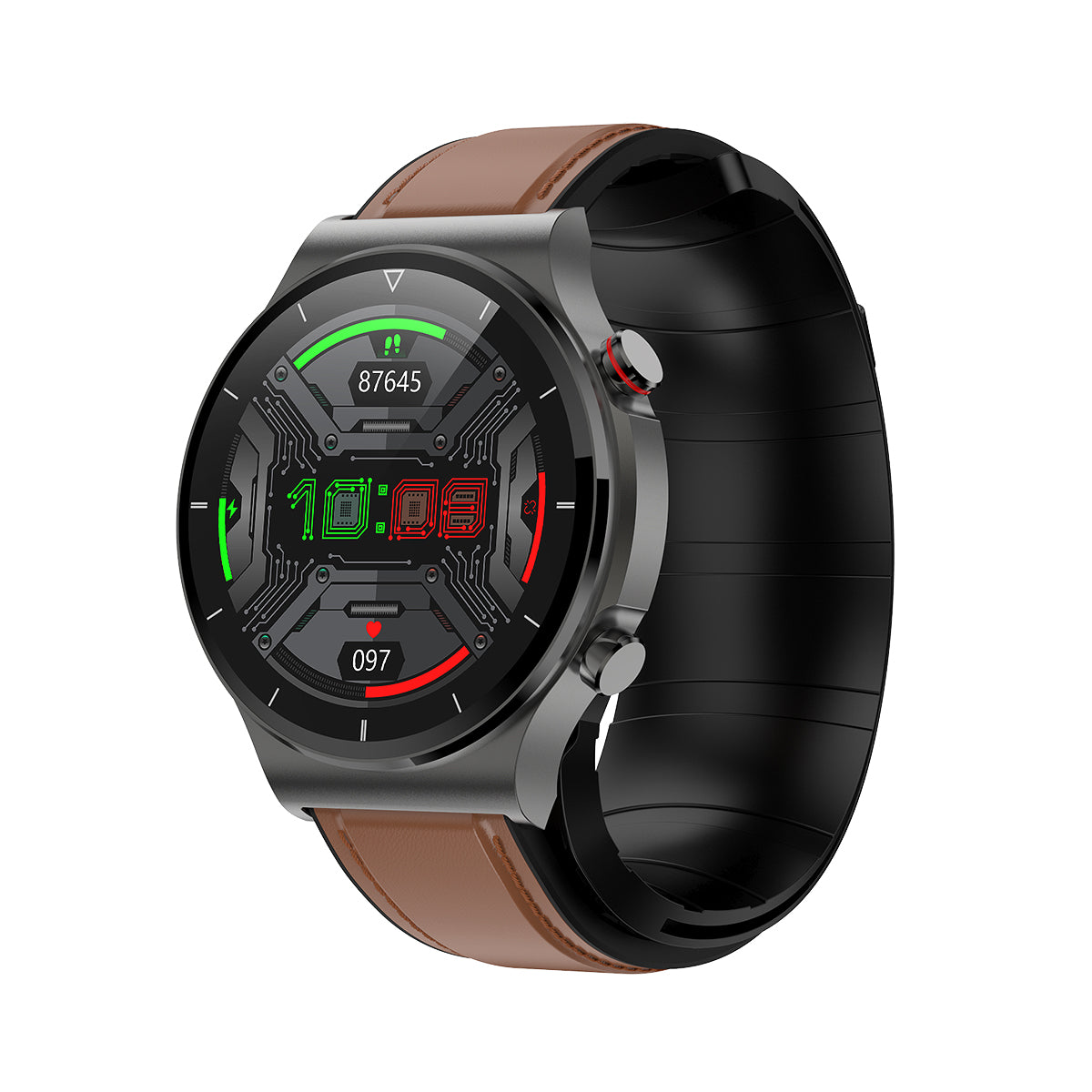Blood Pressure Monitoring Smart Watch
High blood pressure, or hypertension, is a common health concern that affects millions of people worldwide. One significant contributor to high blood pressure is excessive salt (sodium) intake. While sodium is an essential mineral for the body, too much of it can lead to elevated blood pressure levels. Fortunately, there are natural ways to reduce the effects of salt on our blood pressure. In this blog, we will explore these strategies to help you maintain a healthy blood pressure and overall well-being.
Understanding the Salt-Blood Pressure Connection
Salt, or sodium chloride, plays a crucial role in maintaining proper fluid balance in our bodies. However, when we consume more salt than our bodies need, it can lead to the retention of excess water, causing an increase in blood volume and ultimately raising blood pressure. The relationship between salt and blood pressure is well-established, but the good news is that there are ways to mitigate its effects naturally.
-
Reduce Salt Intake Gradually:
The first step to reducing the effects of salt on blood pressure is to gradually reduce your salt intake. Start by cutting back on processed and fast foods, which often contain high levels of sodium. Opt for fresh, whole foods that allow you to control the amount of salt you add during cooking.
-
Use Herbs and Spices:
Replace salt with herbs and spices to add flavor to your meals. Garlic, basil, rosemary, thyme, and many others can enhance the taste of your dishes without the need for excessive salt.
-
Read Food Labels:
Become a vigilant label reader. Check food labels for sodium content and choose products with lower sodium levels. Be aware that sodium can hide in unexpected places, such as canned soups and sauces.
-
Increase Potassium Intake:
Potassium helps counteract the effects of sodium on blood pressure. Incorporate potassium-rich foods into your diet, including bananas, oranges, spinach, and sweet potatoes.
-
Stay Hydrated:
Drinking enough water helps flush excess sodium from your system. Aim for at least eight glasses of water a day.
-
Limit Alcohol and Caffeine:
Both alcohol and caffeine can contribute to higher blood pressure. Consume them in moderation to reduce their impact.
-
Maintain a Healthy Weight:
Losing excess weight can significantly lower blood pressure. Combine a balanced diet with regular physical activity to achieve and maintain a healthy weight.
-
Exercise Regularly:
Engage in aerobic exercises like brisk walking, swimming, or cycling for at least 150 minutes a week. Regular exercise can help lower blood pressure naturally.
-
Manage Stress:
Chronic stress can contribute to high blood pressure. Practice stress-reduction techniques such as deep breathing, meditation, yoga, or spending time in nature.
-
Monitor Your Blood Pressure:
Regularly check your blood pressure to track changes and assess the effectiveness of your efforts. Consult a healthcare professional for guidance and recommendations tailored to your specific needs.
Reducing the effects of salt on blood pressure is essential for maintaining overall health and well-being. By adopting these natural strategies, you can take control of your sodium intake, make healthier choices, and manage your blood pressure effectively. Remember that small changes in your daily habits can lead to significant improvements in your long-term health.
Introducing BP Doctor Smartwatch – Your Partner in Hypertension Management! Track your blood pressure, monitor heart health, and embrace a healthier lifestyle effortlessly. Discover a new level of well-being today!










